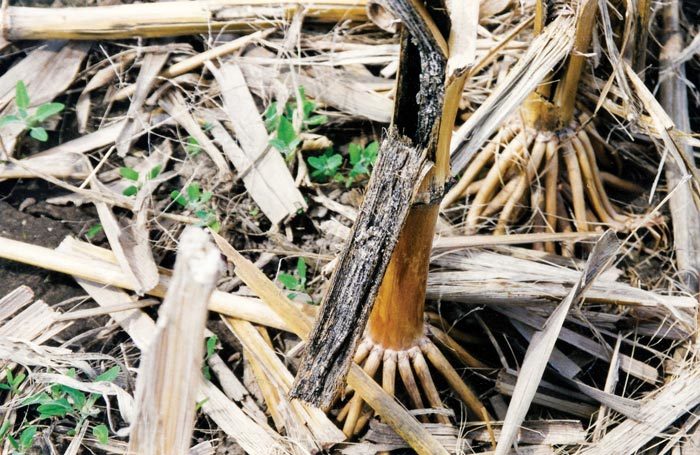No-Till Farmer
Get full access NOW to the most comprehensive, powerful and easy-to-use online resource for no-tillage practices. Just one good idea will pay for your subscription hundreds of times over.


Highly functioning no-tilled soils should, in theory, efficiently break down crop residue into humus and soil organic matter so plants can take up nitrogen (N), potassium and phosphorus (P) left by the decayed material for the next crop.
But how efficiently this happens depends a lot on crop rotation, climate and what types of bacteria and fungi are already present in the soil. Certainly not every soil profile has ideal biological activity.
No-tillers facing mountains of undigested residue from today’s high-yielding crops may want to investigate products on the market touted to help break down crop residue. It could net a return on their residue investment instead of tying up those nutrients.
Eric, Ill.-based Midwest Bio-Tech, markets Chandler Biocat 1000, a liquid enzyme product applied directly on crop residue after harvest for faster and more complete decomposition — especially with heavier stalks from Bt corn.
Biocat 1000 accelerates the decomposition of crop residue by stimulating growth of the beneficial bacteria, fungi and other organisms that break down organic compounds in the soil. It initially works to decay the…